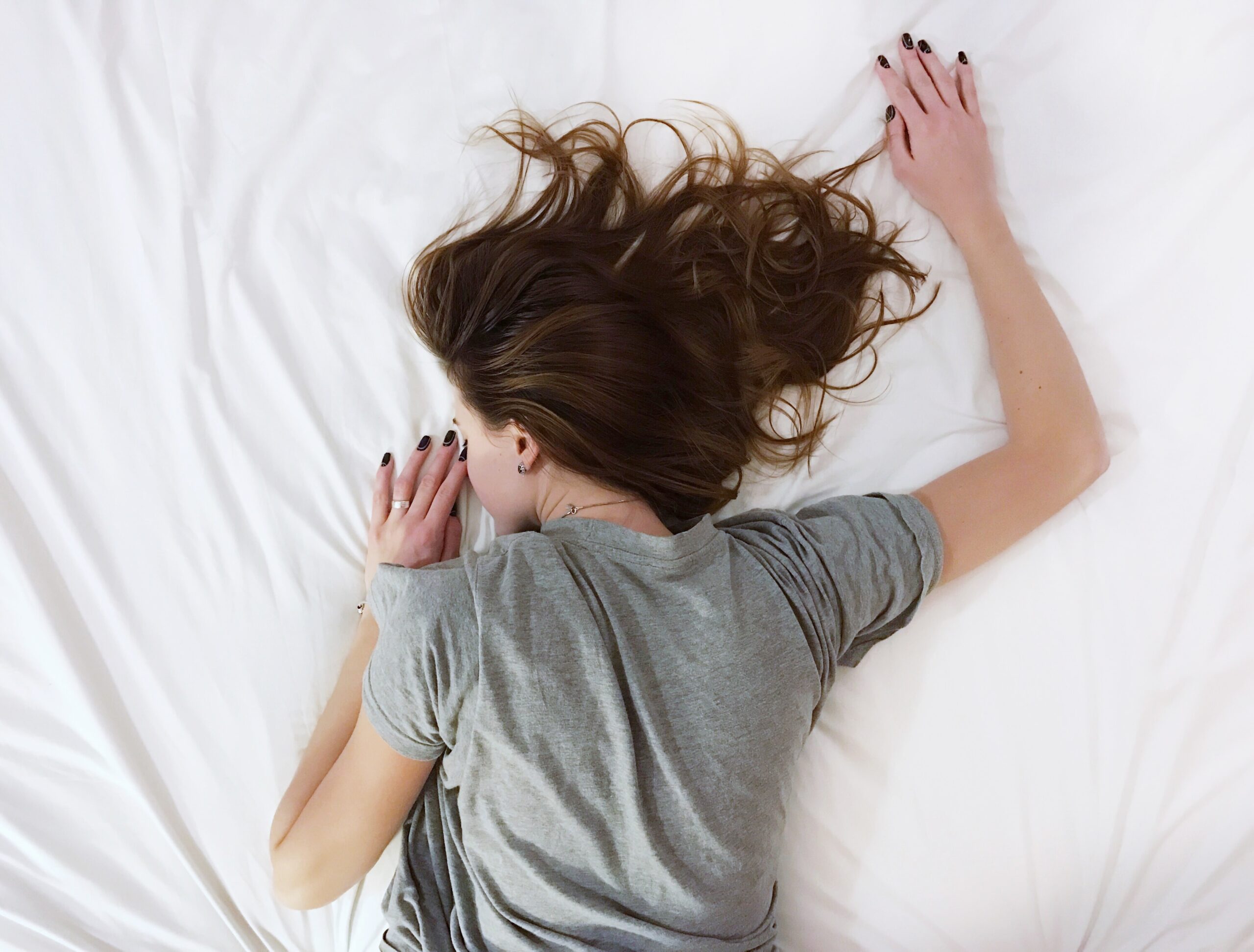
Sleep Saboteurs
1. Caffeine
This one may seem obvious, but what is not as obvious is how long caffeine can stay in your body. It typically takes 4-6 hours for caffeine to leave your system but for some people it can stick around even longer. This means that even your early afternoon pick-me-up could be keeping you up at night. Try replacing your afternoon coffee with a 10 minute walk with a co-worker. Besides the mental break, a brisk walk can kick up your energy for 2 hours without negatively impacting your sleep.
2. Alcohol
Have you ever found yourself waking up at 2am or experiencing night sweats after even just a glass of wine at night? Although a little alcohol can be relaxing at first, it can have a dramatic impact on the quality of your sleep. Consider passing on the night-cap for a week and see if your sleep improves. You may find that a drink at dinner was more of a ritual than a necessity, and you’re feeling better without it.
3. Large High-Fat Meals
Digestion is hard work for your body and can take a lot of energy. When you eat a large meal right before bed, the process of digestion can cause discomfort and make it hard to fall asleep. Try to have your dinner earlier in the night, and your last snack about 45 minutes before you crawl into bed for the night.
Sleep Supporters
1. Magnesium
I really love magnesium! If I had to choose an ideal mineral, magnesium would certainly be it. A magnesium deficiency can be associated with most things that cause tension. Sore muscles, twitching, constipation and insomnia are some of the most common issues I see in my practice. Magnesium is found in beans, whole grains, leafy greens and nuts. In addition to eating magnesium, you can also absorb it through your skin. Try taking a 10 minute soak in Epsom salts (made with magnesium) prior to bed and see if that helps your sleep, I really think you’ll find that you love it as much as I do!
2. Tryptophan
Tryptophan is an amino-acid found in many animal and plant proteins, most notably turkey. It is a key ingredient in the creation of serotonin, which helps you feel calm and promotes sleep. Tryptophan is found in high levels in poultry, dairy, nuts, eggs, honey and bananas.
However there is one catch: in order for tryptophan to work, there needs to be carbohydrates present to help the tryptophan absorb into the brain. So shoot for a combination of tryptophan containing foods and carbohydrates as a bedtime snack. A few of my favorites are yogurt & honey, toast with almond butter or hard boiled eggs with hummus.
3. Melatonin
Melatonin is the hormone that our body uses to regulate sleep. It has recently become a popular sleep supplement; however it can be found naturally in cherries. Unfortunately cherries have a relatively short growing season, so during the times of year when you can’t get them fresh, add in about 4 oz. of tart cherry juice about an hour before bed.
Article was written by Tara and first appeared on TotalGym.com.

